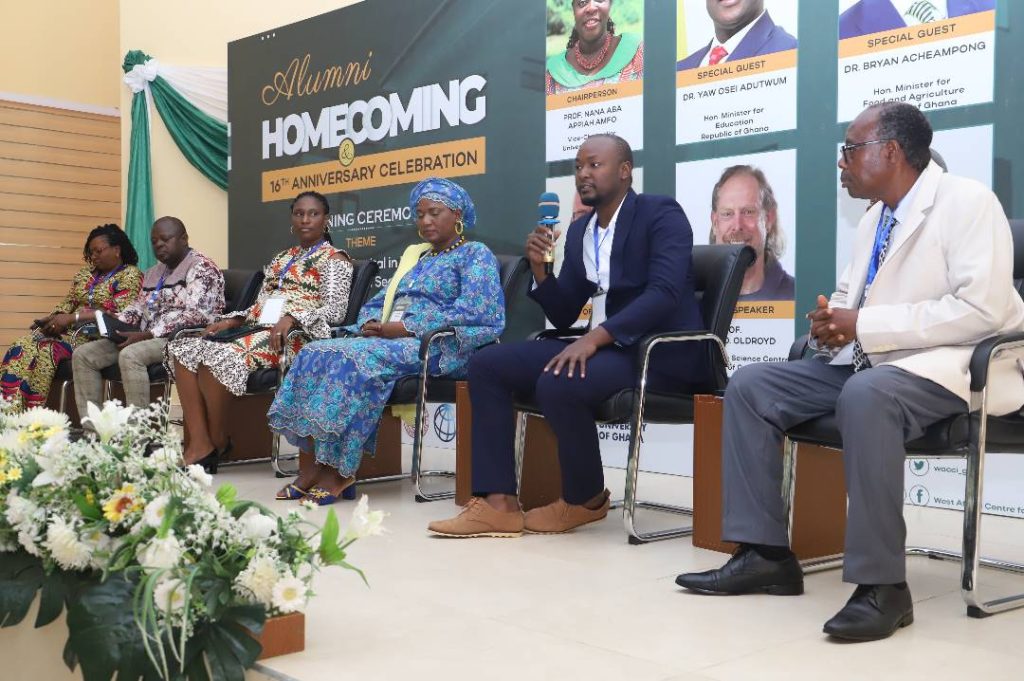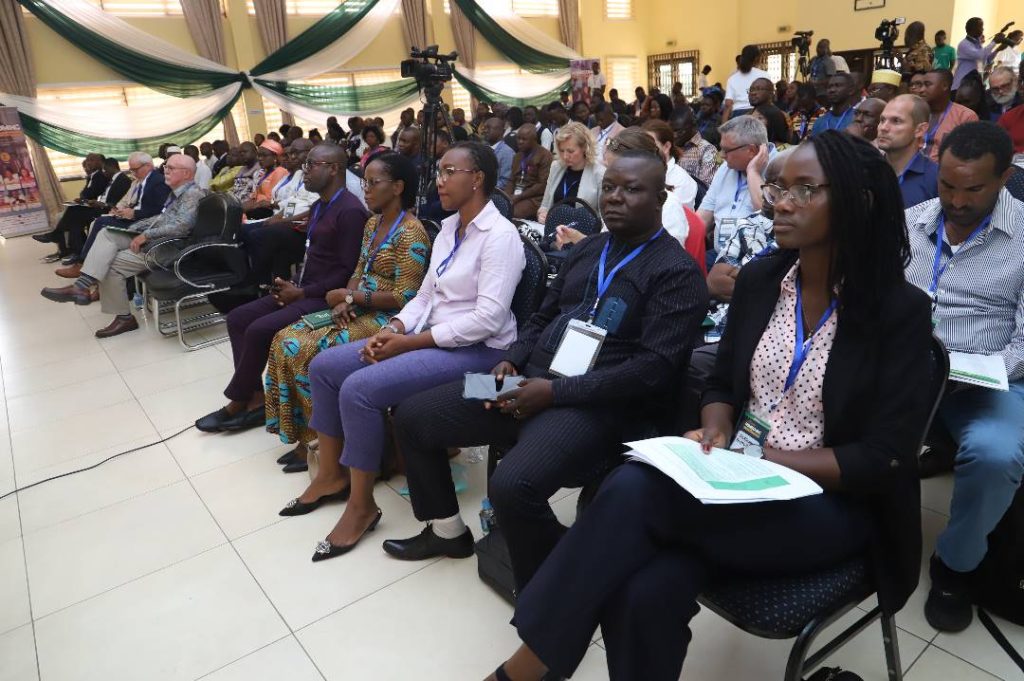Professor Eric Y. Danquah, Founding Director of the West Africa Centre for Crop Improvement (WACCI), has called on African plant breeders to embrace new breeding technologies to ensure a sustainable food secure future.
They should develop climate-smart solutions, as well as equip farmers with the knowledge and tools to be more efficient and effective in developing new crop varieties to address food security for Africa’s growing populations.
Addressing the opening of the three-day celebration of WACCI’s 16th anniversary and alumni homecoming conference at the University of Ghana, Legon, on Wednesday, Prof Danquah noted that plant breeding offered vast sustainable opportunities to increasing food supply and dietary diversity in Africa.
He stressed that it was crucial for African plant breeders to push the boundaries of scientific research to enhance food production on the continent.
With Africa’s economy primarily driven by agriculture, Prof. Danquah, who is a Plant Geneticists at the Department of Crop Science of the College of Basic and Applied Sciences, University of Ghana, explained that there was an increasing need to leverage current plant breeding technology to develop new varieties of seedling and crops to counter the climate change effect on the continent.

He stated that adequate investment ought to be made in crop Improvement technologies to increase food production to guarantee the present and future food needs of Africa.
In an interaction with the media on the sidelines of the event, Pro. Danquah assuaged the fears of opponents of Genetically Modified Organism(GMO) seeds, stressing that the nation stands to benefit if we use the appropriate technologies and innovation to complement efforts to enhance food production.
He added the WACCI’s plant breeding research had developed some robust food crops for Ghanaian farmers.
He disclosed that WACCI had introduced three highly resilient hybrid maize varieties to Ghanaian farmers.

However, 85 per cent of Ghanaian farmers still use old seedlings prone to infestation. That situation, Prof. Danquah emphasized, would not help Ghana address her food challenges.
“In fact, our varieties are such robust that if you use them in the northern sector in Ghana you cannot get less than six tons per hectare. Meanwhile, some farmers do not get even one ton per hectare of maize in their fields,” he said.
He called for collaboration among plant geneticists, and innovation to empower the continent to realise its agricultural potential to ensure food security.
WACCI was established on March 12, 2008, with initial funding from the Green Revolution in Africa (AGRA), as a collaborative partnership between the University of Ghana and Cornell University, USA to train the best generation of West African plant breeders at the PhD levels.
Over the past decade, the Centre has produced cutting-edge research to address the continent’s food security challenges.
WACCI currently has 105 PhDs and 40 MPhil graduates who are at the forefront of the battle against food and nutrition insecurity in 15 African countries.
To mark the milestone, the Centre has outlined the 3-day program to recognise and honour the exceptional contribution of WACCI alumni to address food and nutrition insecurity.
By:Isaac Clottey





